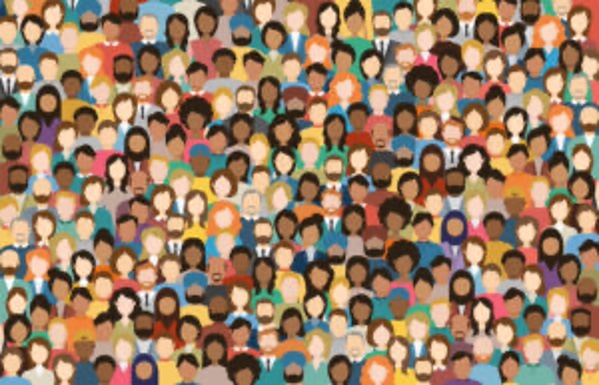How One Company Is Addressing Health Inequities in Eating Disorder Treatment
November 23, 2023
Source: drugdu
 253
253
Eating disorders don't discriminate. Equip, a virtual company that provides eating disorder support, is trying to reach different populations by having a diverse care team and working with advisors from different backgrounds, said Kristina Saffran, CEO and co-founder of the company.
By MARISSA PLESCIA

There is a common stereotype that eating disorders only affect thin, young White girls. But Kristina Saffran, CEO and co-founder of virtual eating disorder care company Equip, will be among the first to say that this is not true, despite fitting the stereotype.
“Eating disorders affect everybody. They affect people of all different ages, races, genders, ethnicities, sexual orientations, body shapes and sizes. These do not discriminate,” Saffran said during an interview last week at the Behavioral Health Tech 2023 conference in Phoenix.
“I am someone who fits the mold to a tee. … I was diagnosed with anorexia at 10, relapsed at 13, went into my pediatrician having lost 10 pounds and my pediatrician didn’t bat an eyelash. If I’m not getting identified, who is?” she continued.
San Diego, California-based Equip is trying to solve this issue through its virtual platform. The company connects patients with a care team, which includes a therapist, dietitian, physician and peer and family mentor. For younger patients, the company uses family-based treatment, which involves the patient’s family in the care. However, the company recently expanded to also serving adults and often uses individual treatment for this population.
Equip is addressing the inequities in accessing eating disorder care by working with payers, including Medicaid plans, so its services can be a covered benefit for patients, Saffran said. Equip also created an advisory board that includes people with different lived experiences when it comes to eating disorders.
She added that Equip is investing in care teams “that are from the populations of the people that we want to serve, that really look like the patients and families and have similar experiences.
“We want to make sure that our care is culturally competent, that folks have somebody who they can relate to,” Saffran said.
Equip also works with focus groups that include people internal to the company and people outside of the company. One of its outside advisors is Hopelab, which is helping Equip reach the BIPOC community (Black, Indigenous, and People of Color).
“There’s a big stereotype and misconception that Black people don’t have eating disorders and that’s absolutely not true,” Saffran said. “But how do you approach that messaging? One simple thing we’ve learned is that the language of eating disorders doesn’t resonate. The language of disordered eating or struggles with food and body is much more resonant.”
It’s important to get messages out in the community as well, such as churches and after-school programs.
“These are the influencers in the community that you want to be able to speak to and reach,” Saffran said.
Additional companies that offer virtual solutions for eating disorders include Arise and Within. Arise offers coaching, therapy, nutrition counseling, group support and psychiatry. Within, meanwhile, provides a care team that includes dietitians, therapists, nurses and peers.
Photo: PeterPencil, Getty Images
By editorRead more on
- The first subject has been dosed in the Phase I clinical trial of Yuandong Bio’s EP-0210 monoclonal antibody injection. February 10, 2026
- Clinical trial of recombinant herpes zoster ZFA01 adjuvant vaccine (CHO cells) approved February 10, 2026
- Heyu Pharmaceuticals’ FGFR4 inhibitor ipagoglottinib has received Fast Track designation from the FDA for the treatment of advanced HCC patients with FGF19 overexpression who have been treated with ICIs and mTKIs. February 10, 2026
- Sanofi’s “Rilzabrutinib” has been recognized as a Breakthrough Therapy in the United States and an Orphan Drug in Japan, and has applied for marketing approval in China. February 10, 2026
- Domestically developed blockbuster ADC approved for new indication February 10, 2026
your submission has already been received.
OK
Subscribe
Please enter a valid Email address!
Submit
The most relevant industry news & insight will be sent to you every two weeks.



